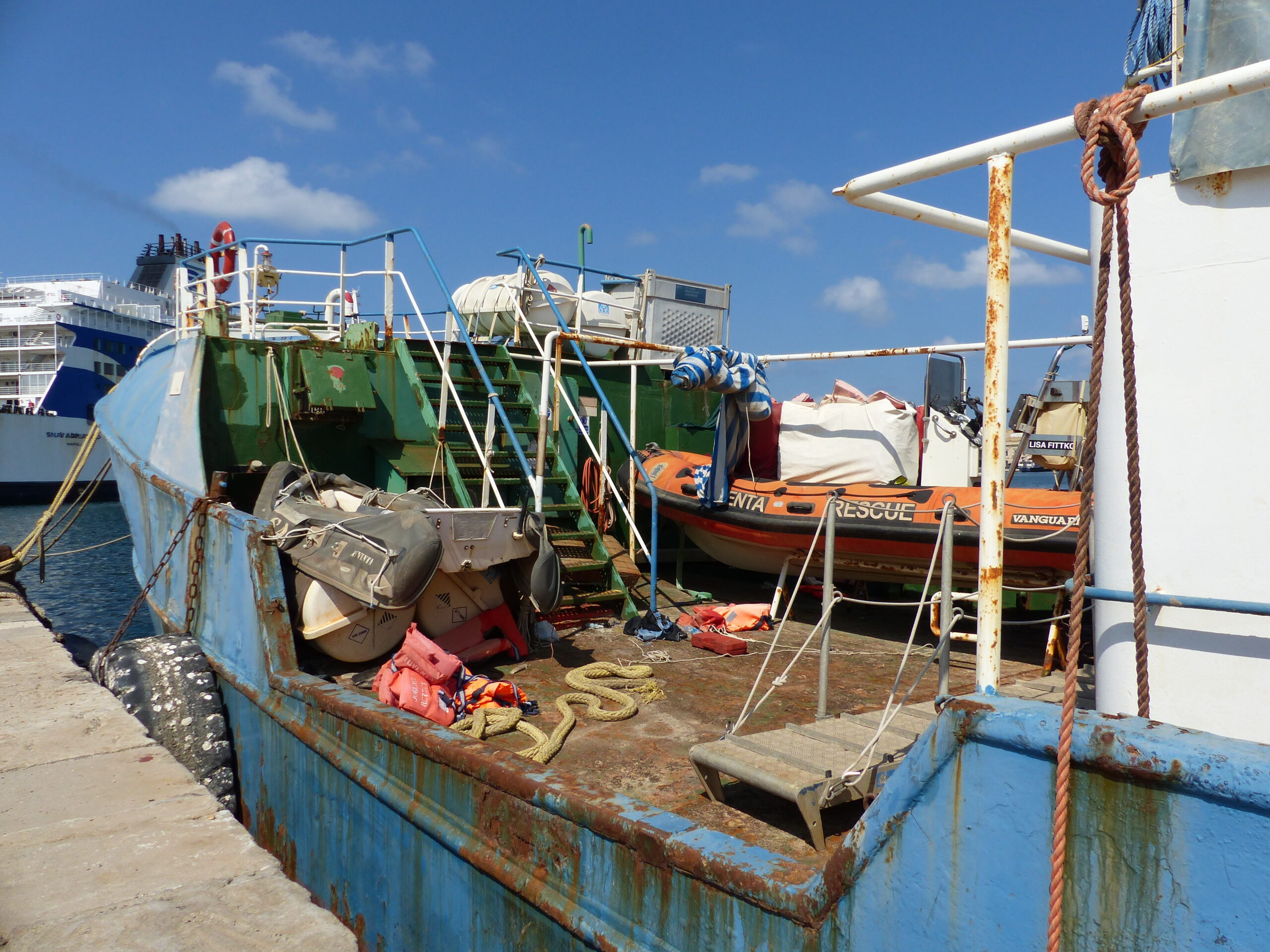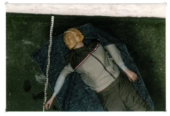The EU Commission wants to take stronger action against “smugglers” with two new laws. The proposals jeopardise NGOs and the refugees themselves. The package is unlikely to be adopted before 2025.
The agreement reached by the Council and Parliament on an “Asylum and Migration Pact” is indeed “historic”, as the EU Commissioner for Home Affairs, Ylva Johansson, exulted on Wednesday: In over a dozen directives and regulations, the rights of refugees have been massively dragged down since 2020. However, another legislative package was lost in the fuss surrounding the CEAS reform: On 28 November, the Commission proclaimed a “Global Alliance to Combat Migrant Smuggling” and presented two proposals at a conference of the same name.
With a new regulation, the police agency Europol is to be given more powers to prosecute “migrant smugglers”. This applies in particular to the “Migrant Smuggling Centre” (EMSC), which Europol set up in 2016 to investigate such networks”. Until now, the centre’s role has mainly consisted of writing situation reports or removing internet content advertising paid smuggling.
According to the proposal, the EMSC is now also to lead task forces for the “operational support” of European police authorities. They would be allowed to operate on the territory of the 27 EU member states – provided the government there has requested this. Europol could then provide “analytical, operational, technical, and forensic support”. The EU investigators could then coordinate cross-border raids, such as those that took place in Germany and other countries last year in relation to the cross-Channel flight offences.
The Member States should also ensure that their “special investigative tools” can be used to combat organised crime in the area of “migrant smuggling”. This is the aim of another regulation proposed by the Commission. Included in this are the investigation of bank accounts and transfers as well as the interception of all digital communications. The Spanish EU Presidency recently demanded that this should also cover encrypted messages. Investigators in the 27 EU member states are also to prevent “online advertising of smuggling services” and have corresponding content on social media deleted.
The Commission emphasises that helping family members to enter the country undocumented should remain unpunished. Migrants or refugees should also not be prosecuted for making use of helper and paying money for them. Nevertheless, they are often prosecuted as “smugglers” themselves, for example if they operate the engine of a boat during the crossing to Europe or communicate with rescue centres via a satellite phone.
Organisations such as Borderline Europe are drawing attention to this criminalisation. Almost every day, people are sentenced to draconian prison sentences and fines in Greece under the pretext of “combating people smuggling”, states a report from this summer issued by Borderline Europe. With the new regulation, the Greek authorities would receive backing from Brussels for this persecution.
With the law, the EU Commission also wants to standardise the penalties for “smuggling” in the EU member states. For example, “offences committed within the framework of an organised criminal group” are to be prosecuted more severely by the judiciary. The minimum and maximum penalties provided for in the proposed regulation go beyond the current EU Framework Decision on “Strengthening the penal framework to prevent the facilitation of unauthorised entry, transit and residence” from 2002. The maximum penalty for facilitating “smuggling” is now to be at least three years, in the case of organised crime at least ten years and for the most serious offences (such as those resulting in death) 15 years.
The new sentencing range should always apply if a financial or material benefit is associated with the “smuggling” offence. However, the offence should also be punishable without such remuneration, for example if it causes “serious harm to third-country nationals”. In addition, those who “publicly instigating third-country nationals, for instance through the internet” to enter, transit or reside in the EU without authorisation are also to be punished. Organisations such as the Alarm Phone or sea rescuers are confronted with such accusations when they report on their activities on the internet and in social media.
The Commission is also proposing to extend the jurisdiction of the Member States to territories outside the EU. This would also allow “smuggling cases” in international waters to be prosecuted. The regulation is aimed at those who help people to flee to Europe by putting them on unseaworthy boats, thereby causing deaths. However, the police and judicial authorities should also be able to take action if the offences are committed on board ships or planes registered in a member state.
Even though the regulation confirms that “humanitarian aid” or “search and rescue operations by non-state actors” must not be criminalised, the law could also affect civil sea rescue. This is because civil organisations from countries such as Italy, Greece and Malta are repeatedly taken to court for alleged “smuggling”.
Such investigations and proceedings are even favoured by the proposed regulation. It states that it should be assessed “on a case-by-case basis, taking into account all the relevant circumstances” if an act falls within the concept of “humanitarian assistance”. The sea rescuers would then be forced to prove in each of these cases that they are complying with applicable law.
It is unlikely that the package of laws against helpers of migrants and refugees will be passed before 2025 at the earliest. Before then, the new parliament must be constituted after the elections in the summer. As with the CEAS reform, it is conceivable that the governments of the member states will even tighten up the Commission’s proposals. The Parliament is also likely to move further to the right, meaning that, as with the “Asylum and Migration Pact”, no support can be expected from MEPs against the frontal attack on helpers of People on the Move.
Published in German in „nd“.
Image: In 2017, Italy confiscated the “Iuventa” and the crew is on trial in Sicily for “aiding and abetting smuggling”. Such repression could be favoured throughout the EU with the new legislative package (Iuventa).





Leave a Reply